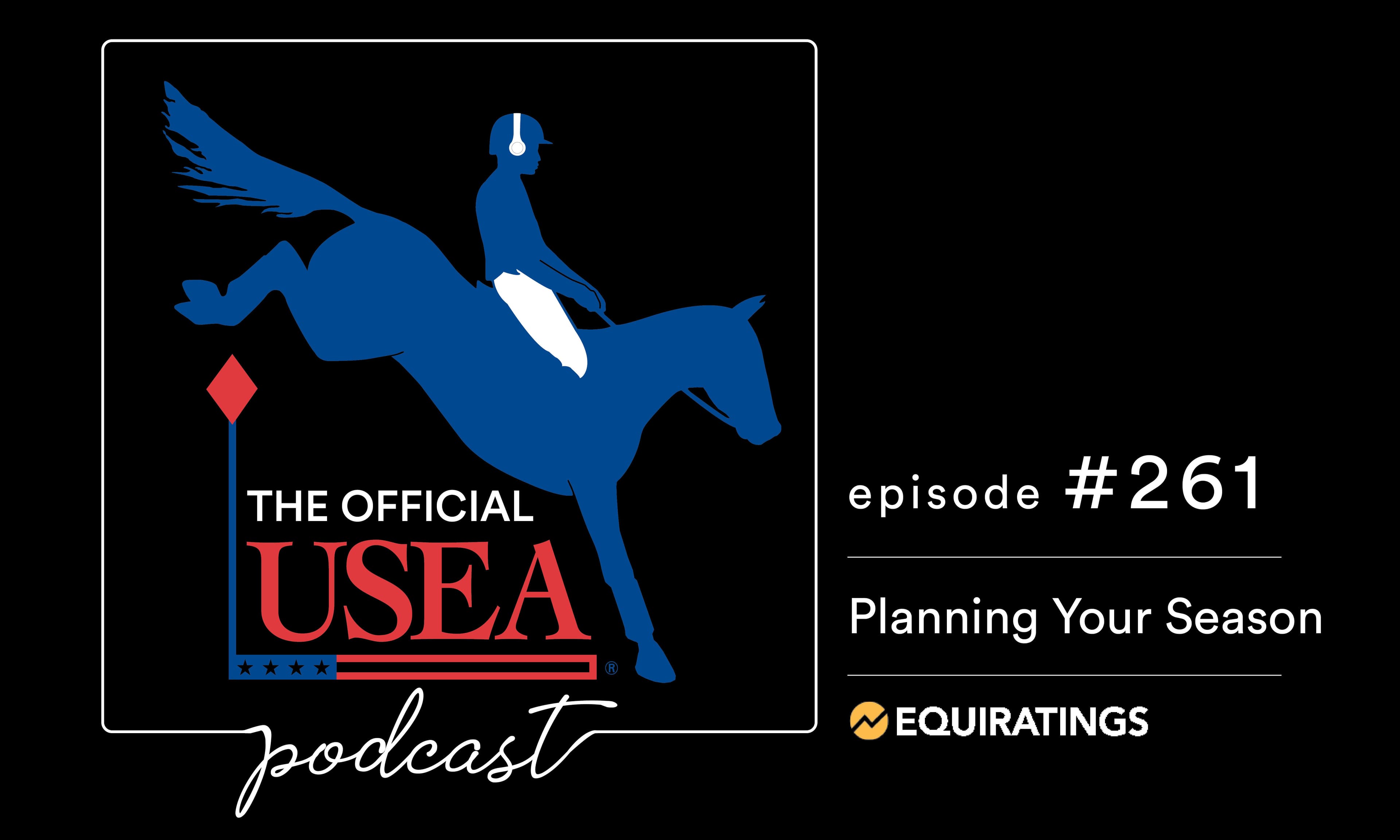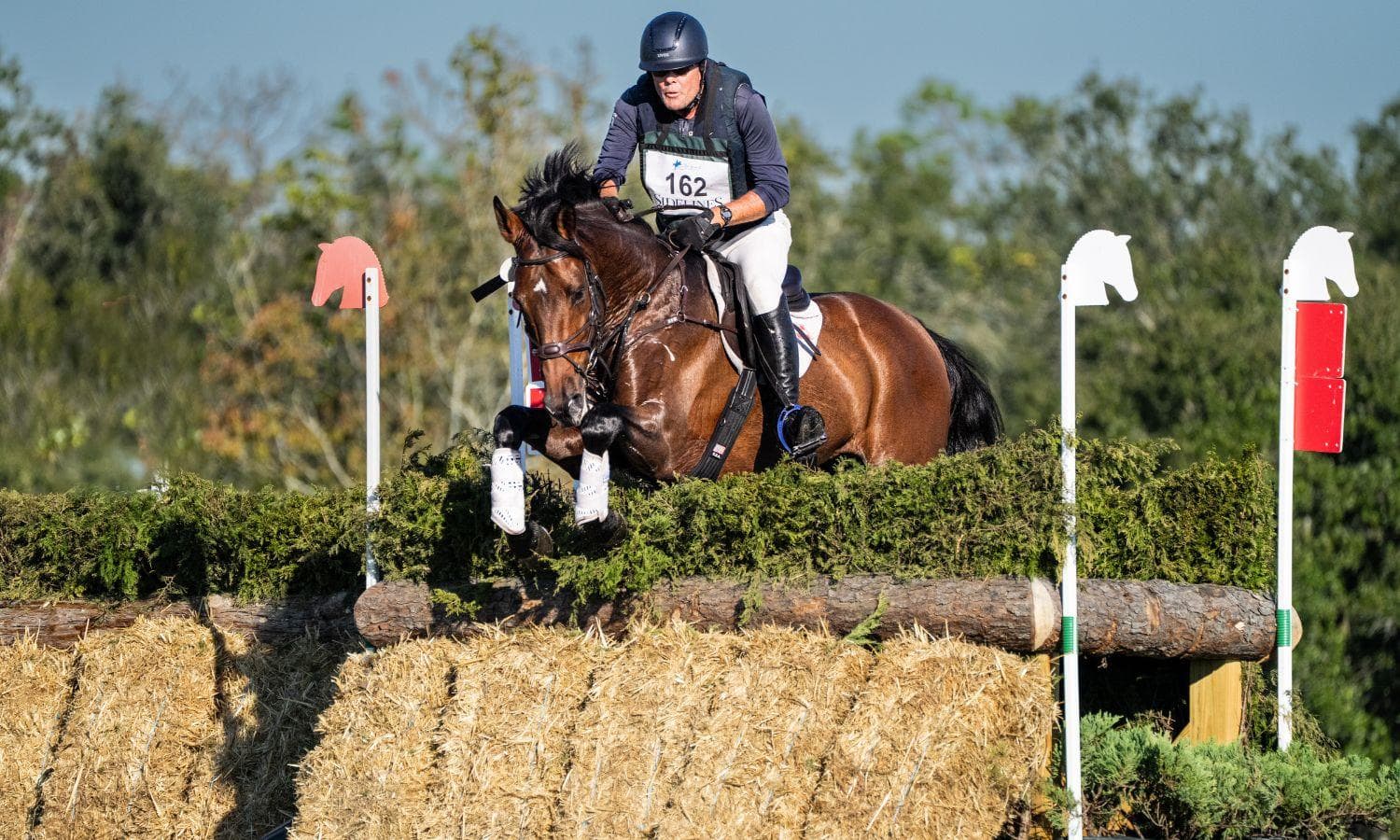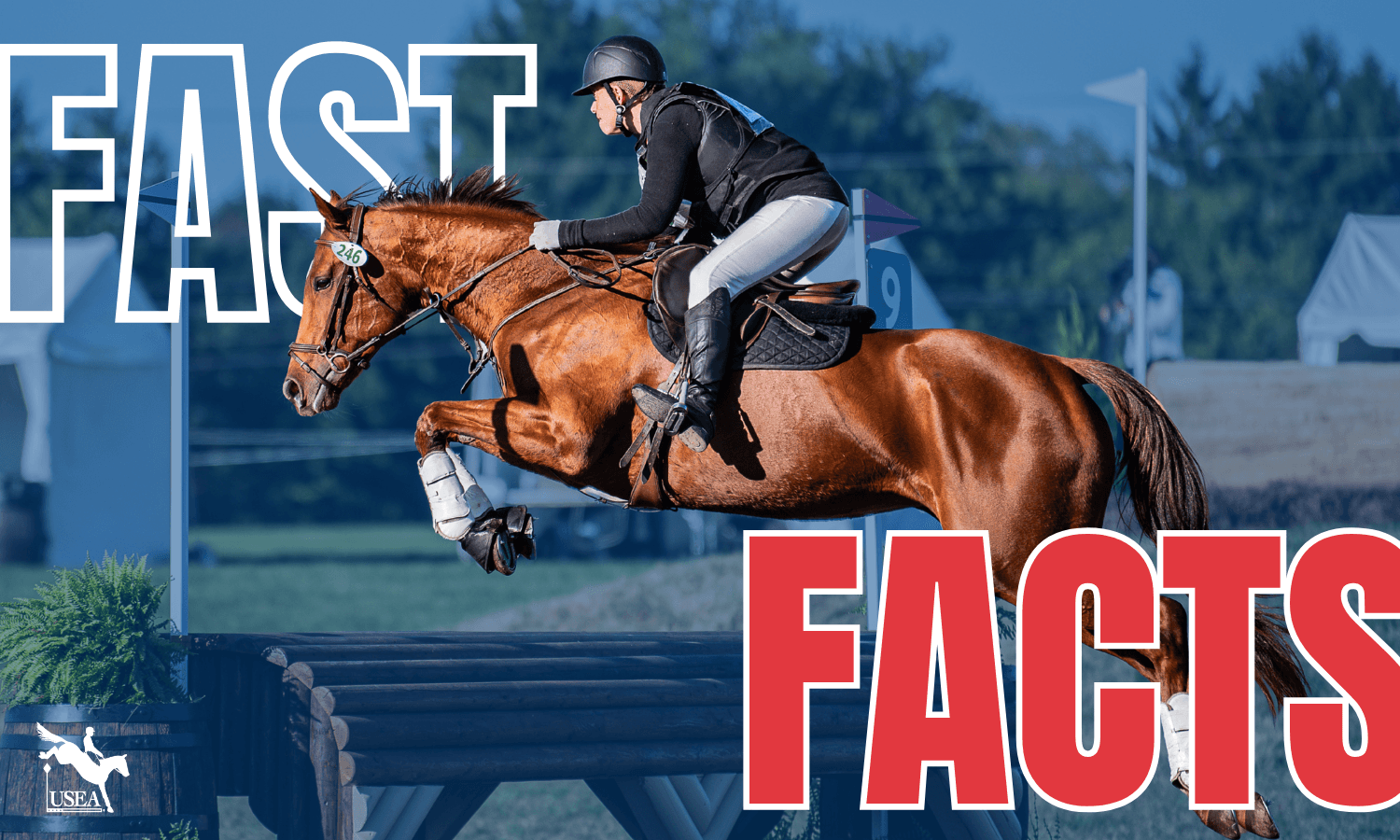Association News
USEA Podcast #261: Planning Your Season

The 2020 show season has looked a bit different than any of us anticipated, and for many people season-planning was placed on hold. In an episode that was recorded before the COVID-19 pandemic, Nicole Brown and Diarm Byrne welcome international five-star eventer Will Coleman and British high performance veterinarian Spike "The Vet" Milligan to the show to discuss some of the considerations for planning your season from each of their unique perspectives. While season-planning for many is taking place later than expected, these tips and tricks can be helpful for planning your season, no matter the time of year.
- First off, Coleman walks through the process he uses to plan out the season for his string of horses, explaining that it usually takes place over a period of weeks, sometimes even as far back as November of the previous year. Typically, he starts with the horse's major goal for the season, whether that be Kentucky or Bromont or something overseas, and works backward from there.
- Coleman emphasized that each horse is a bit different, and that will factor into the planning process.
- “You’ve got to have a plan, but you’ve got to be flexible. They’re not machines.”
- Another important consideration is going to the event that is going to suit your horse. Maybe one event has a particularly hilly cross-country track, or is known for having a tricky show jumping course, or the atmosphere is a factor. Pick the event that is going to best suit your horse's individual needs.
- When considering moving your horse up to the next level, Coleman says it's important to take stock of how well your horse is handling all the work he's being asked to do, including at home, not just whether or not he's jumping clear at events. He looks for his horses to feel almost bored in competition before considering the move-up to the next level.
- The concept of horsemanship is a key ingredient in the process of planning your season. You need to know your horse inside and out and be prepared to make the decisions that are in his best interest.
- Spike "The Vet" Milligan introduces himself to our listeners and shares some of his experience, which includes more than 10 years working with event horses.
- Milligan discusses some of the key considerations, from a veterinary perspective, for preparing your horse for an event, getting your horse through an event, and helping them recover after an event.
- It's important to start with a baseline for your horse's health and fitness at the outset of the season so that you can continually reevaluate throughout the year and be able to compare to where your horse started.
- Because of the distances that U.S. riders frequently have to travel to reach competitions, Milligan shares some tips and tricks for helping your horse well.
- Milligan discusses his strategies for caring for a horse during a short-format event versus a long-format event. The information you gain from seeing how your horse recovers from a short-format or one-day event can inform your decisions about how to help your horse recover during a long-format event.
- Byrne chimes in with a bit of information about how using statistical measurements of performance can also help create benchmarks for a season. Once you have a measurement tool in place for success, you can begin figuring out what other things you need to accomplish to reach those goals. Check out EquiRating's simple metrics for tools you can use to track your progress, and you can check out articles on the USEA website and in Eventing USA magazine as well.
Subscribe to the USEA Official Podcast on Apple Podcasts, Spotify, PodBean, or Stitcher, or click below to listen in!















